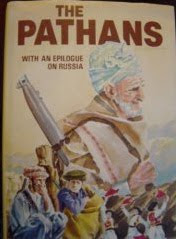Pashtuns also known as pushtuns, pakhtuns also called pathans with population primarily in afghanistan and in north western pakistan which include khyber pakhtunkhwa FATA and balochistan.
Their true origin is unclear but historians have come across references to a people called Paktha (Pactyans) between the 2nd and the 1st millennium BC, who may be the early ancestors of Pashtuns. Since the 3rd century AD and onward, they are mostly referred to by the name.The vast majority of Pashtuns are found between the Hindu Kush mountains in Afghanistan and the Indus River in Pakistan. Additional Pashtun communities are found in the Gilgit-Baltistan territory, the Mianwali and Attock districts of Punjab province in Pakistan, as well as in the Khorasan province of Iran. There is also a sizeable community in India, which is of largely putative ancestry. Smaller Pashtun communities are located in the countries of the Arabian Peninsula, Europe and the Americas, particularly in North America.The history of the Pashtun people is ancient and much of it is not fully researched. Since the 2nd millennium BC, cities in the region now inhabited by Pashtuns have seen invasions and migrations, including by Ancient Iranian peoples, the Mediian and Persian empires of antiquity, Greeks, Mauryas, Kushans, Hephthalites, Sassanids, Arab Muslims, Turks, Mongols, and others. In recent age, people of the Western world have explored the area as well.
Monday, April 25, 2011
Saturday, April 23, 2011
history of pathans

Around 722 BC, Israeli civil war and changing strategic interests forced Assyria to deport ten tribes to the east, towards Persia (Iran). A hundred years later, the Babylonians deported the remaining tribe of Yehudah and some Benjaminites to Babylon (Iraq). The Yehudah returned to Israel with the help of Cyrus the great of Persia, but the other ten tribes never retuned. The search for the “Ten tribes of Israel” is a very controversial issue because their descendants lost most of their Israelite traditions and do not possess the Talmud (Oral Torah similar to the hadith of the Muslims).
Perhaps the focal point which has dissuaded Israelites from searching openly for their brethren is the Israelite civil war after King Solomon’s reign, which pitted Yehudah (Judah) against all the other tribes and eventually brought their collective downfall. Hence the descendants of the “Lost Tribes” have lived and spread in the lands east of Israel which are now known as Iran, Afghanistan, Pakistan, Kashmir, India, Burma and even western China.
The Pakhtuns have been living in the Afghanistan area for over 2,000 years. Their language Pashto/Pakhto borrows widely from the Arab-ized Persian of their neighbors (now Iran), yet it was a purely spoken dialect.
There was no Pakhto/Pashto written script whatsoever, the first Pashto book appearing about the 1500s. Hence the traditions, customs, tribal genealogy and law orally transferred from father to son. The first book on Pakhtun genealogy, the Makhzan-al-Afghani was written in 1613, and contained for the first time a printed table of descent from Abraham to the Pakhtun tribes, through the tribe of Binyamin. While the book was not accepted initially by British historians, modern historians consider it the most accurate account as compared to the other theories proposed by classical historians.
Speaking on this Zionism topic alone is quite interesting...the word "Zionist" is created from the mountains of Yerushalim which are called "Zion". Similarly the language of the Pathan tribesmen is called Pashto, and its speakers call themselves Pashtun, from the Persian word "Pasht" which means "back of the mountain" so in reality Pashtun is a person who lives in the mountains. The mountains the Pathan's have been living in after exile are called the Suleiman (Solomon) mountains. The Jews/ B'Ni Israel from Russia also call themselves Mountain Jews and are said to be from the same exile.
The word Pathan is a Pashto written form of the original word Pathan in DTorah (Divrei Hayomin/Kings 2), noting their ancestor from the line of Sarul ben Qish, the first King of Israel, who was King David's father in law.
Subscribe to:
Posts (Atom)
